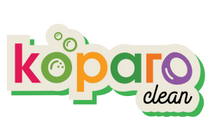
How Laundry Detergent Ingredients Work
WHICH DETERGENT CARES FOR YOUR CLOTHES
Since the first bar soaps made from animal fat and lye were sold in the 1700s, laundry detergents have come a long way. In the 1950s, synthetic detergents were introduced to the market, giving homemakers greater fabric-care options. The addition of enzymes that "attack" specific stains were the most significant advance in the laundry in the 1970s. When it comes to cleaning laundry, it's those enzymes that separate the men from the boys.

Basic Detergent Formulas
To make their own brands, each detergent maker has its own secret ingredients and mixtures. Many of these ingredients are made from plants, while others are made from petroleum. The cleaning power of the detergent is determined by the amount of each ingredient and how they are combined.
Alkalizers
A compound or chemical that neutralises acids is known as an alkali. They are used in liquid detergents to successfully remove grease-based grime and stains because the alkali (in the form of a soluble salt) reacts with the grease to lift it out of the fabric and produce an oily particle that is then attached to the surface and drained away.

Surfactants
A surfactant is a material that when dissolved in water reduces the tension or surface tension of the water. This is important in washing liquids because it helps to remove dirt and oil that otherwise wouldn't dissolve in the water.
Catalytic Enzymes
Catalytic enzymes come in a variety of shapes and sizes, but they all have one thing in common: they operate to break down larger compounds into smaller ones. Laundry detergent often contains a variety of enzymes that help break down a variety of chemicals. Protease, for example, degrades protein-based chemicals, while lipase degrades fat-based molecules.
Fragrances
Every product will have its own unique blend of perfumes in order to get the desired smell. Washing liquid ingredients are available in a variety of scents, ranging from Lavender to Floral.
Colourant
Colourants in washing detergent serve no purpose other than to colour the liquid to make it more appealing to the user.
How Detergents Work to Clean Clothes
When washing clothes, a three-step process of chemical energy, thermal energy, and mechanical energy must be used to get the greatest results from any laundry detergent.
Laundry detergent is, of course, the chemical energy. The ultimate outcomes will be influenced by the components in the laundry detergent you use. Detergents with fewer or no enzymes are less expensive. Having fewer enzymes means having less cleaning power.

How to Select the Best Detergent?
On the laundry detergent shelves, there are a lot of options. What factors do you use to make your decision? The best option is the one that better matches your family's needs in terms of efficacy, fragrance preference, form (powder, liquid, or single dose), and price.
Here's where and how to start. Assess the types of stains and the amount of body soil in your family's laundry. If the majority of the items are slightly dirty and have few stains, a less expensive detergent and a good stain remover may be all you need.
Next, read the ingredients on the laundry detergent label or look them up online. Surfactants and enzymes are important for removing soil and stains.
You may find that having two detergent formulas on your laundry shelf is sufficient; one for mildly soiled clothes and the other for heavily soiled clothes.

Although most detergents will work in cold water, if you want to use cold water exclusively, you should choose one that is specifically made for it.
The scent of laundry detergent is important to many people. Just keep in mind that "smelling clean" does not mean "being clean." Make sure the soil is being removed rather than just covered up with the scent.
Koparo’s Laundry detergent is powered by bio-enzymes to tackle deep stains, natural surfactants making them safe for all cloth types, hypoallergenic fragrances, and added eucalyptus oil to prevent germ transference in laundry times and ZERO added bleach or optical brighteners or colourants. Super safe choice for your clothes and skin!









